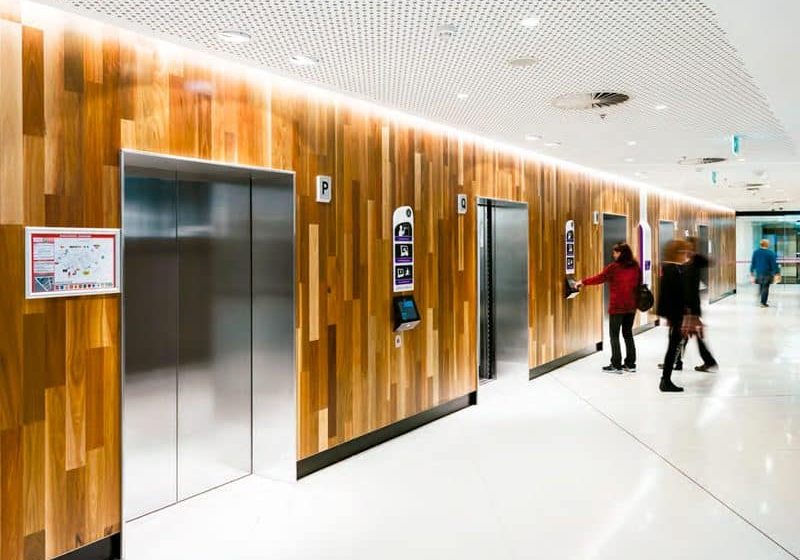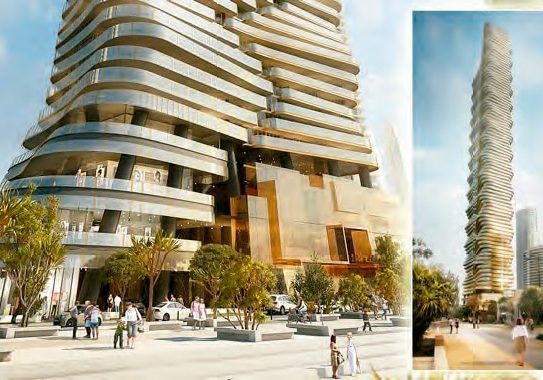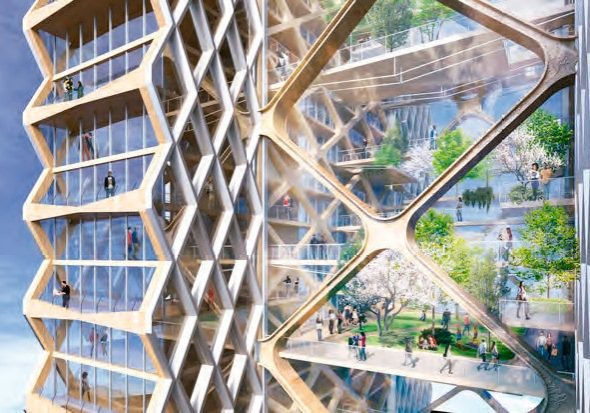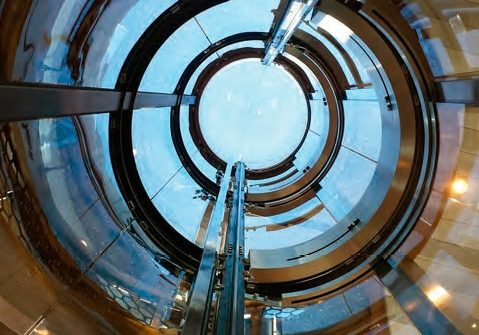East Africa Elevators Co. Ltd.
Jan 1, 2017
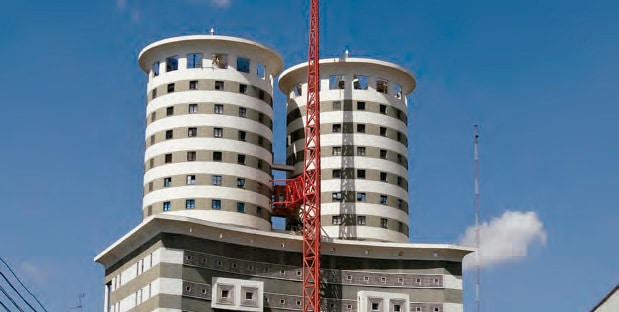
The story of East Africa Elevators Co. Ltd. (EAECL), one of the largest in the region’s lift market, mirrors not only the growth of the industry in East Africa, but also that of the key drivers behind that growth. EAECL was founded in 1964 when the key markets of Kenya, Uganda and Tanzania were newly independent states.
A look at the list of buildings with EAECL’s rubber stamp on their vertical-transportation systems summarizes the achievements of East African countries’ building and construction sectors from the early 1960s, when the region’s lift industry was in its infancy. Jasjit Ahluwalia, the company’s East Africa head of Sales, states:
“We pride ourselves on having successfully installed more than 1,000 lifts. We have established a reliable lift industry in East and Central Africa, along with very knowledgeable, competitive and dynamic staff in the region.”
Ahluwalia said the company, which was incorporated as Waygood Elevator Co. in Kenya before changing its name to EAECL to reflect its roots, “has become the only company in the East African lift industry to display all-around stability amidst myriad extreme economic and competitive challenges.”
EAECL’s name can be found on many pieces of lift-industry equipment in East Africa’s airports, banks, hospitals, government buildings, hotels, apartment buildings, power-generation facilities, commercial buildings and shopping malls.
EAECL has installed and maintains passenger lifts, goods lifts and moving walks at the Jomo Kenyatta International Airport (JKIA) and Julius Kambarage Nyerere International Airport (JKNIA) in Kenya and Tanzania, respectively.
JKIA is the flagship airport of state-run Kenya Airports Authority, which says the airport handles more than 40 passenger airlines and 25 cargo airlines, making it Kenya’s largest aviation facility and the busiest airport in East Africa. Every year, the airport handles an average of 6.5 million passengers, pushing the demand for quality people-moving equipment even higher.
EAECL has installed eight elevators at JKIA terminals 1 and 2, which are for international and domestic departures and arrivals, respectively. It has also installed goods lifts and moving walks. The construction of the biggest terminal at the airport, which is referred to as the Greenfield Terminal, was slated for completion in 2017 but cancelled earlier this year by Transport Minister James Macharia over escalating project costs. When resumed, it will potentially create more business for EAECL. It is expected to be the largest of the airport’s three terminals, with a capacity of six million passengers annually.
“We frequently organize to have trainers from Portugal, Germany and Spain come in and train our personnel, which has given us a competitive edge in the region’s market.” — Jasjit Ahluwalia, East Africa head of Sales, EAECL”
EAECL has installed another eight units at the Nation Centre building, which was designed and built by Nairobi-based real-estate company Property Development Management between 1992 and 1997 along Kimathi Street in Kenya’s capital. The 73-m-tall twin towers have seven floors each, rising from a main podium of 10 floors with a colonnade set above three basements for parking. It houses a central core containing its integrated systems, including lobbies, lifts, staircases, service risers, integrated communication ducts for telephones, computers and power risers (with generators), while the rest of the floor area is open-plan flexible space.
The company has also installed lifts in Tanzania at the Bank of Tanzania, Tanzania Telecommunications Co. Ltd., Muhimbili and Aga Khan hospitals and the New Arusha Hotel. They are among the 25 clients the company has served in the country. In Zanzibar, EAECL has installed equipment at Abeid Amani Karume International Airport.
Going forward, EAECL hopes to be among the top 100 mid-sized companies “ranking ahead of its peers in terms of revenue growth, profit growth, returns to shareholders and cash generation/liquidity,” said Ahluwalia, adding:
“We are currently focusing on the Kenya and Tanzania markets but are soon moving into unexplored markets such as Rwanda and Uganda, which are fast coming up with developments that provide elevator companies with opportunities to grow their market shares.”
Ahluwalia said the company looks forward to strengthening its services division, performing maintenance on systems already installed, carrying out periodic internal inspections of installed units and providing lift consultancy/training with the backing of qualified and committed staff. “We frequently organize to have trainers from Portugal, Germany and Spain come in and train our personnel, which has given us a competitive edge in the region’s market,” he said.
EAECL was among the first elevator companies in Kenya to be registered and certified by the Department of Public Works and, recently, by the country’s construction industry regulator, the National Construction Authority. The company’s growth has more to do with its partnerships with leading global elevator brands such as Otis and thyssenkrupp.
For a long time, EAECL was the sole agent in Kenya, Tanzania, Ethiopia, Rwanda, Burundi and Madagascar for Otis France for Otis products. However, in September 2015, EAECL became the sole distributor of products from German industry giant thyssenkrupp Elevator in Kenya and Tanzania. The distribution is for all thyssenkrupp lifts, escalators, dumbwaiters, micro-lifts, moving walks and goods lifts, elevators, escalators/moving walks and passenger boarding bridges.
At the time, EAECL General Manager Jiten Wadhia was quoted as saying his company would invest US$1.5 million to grow its business. Ahluwalia told ELEVATOR WORLD: “The partnership with thyssenkrupp means our products in the market have met the rigorous European standards for the building-transport industry, which has won us clients who value quality for their properties.”
The partnership comes one-and-a-half years prior to a time when Kenya, a leading elevator market in East Africa, projects substantial growth for its building and construction industry. In its 2016 Construction & Real Estate report for Kenya, Oxford Business Group said the country’s construction sector “continues to see robust growth and remains a central component of the country’s immediate and longer-term economic growth agenda,” adding:
“The industry’s gross domestic product (GDP) contribution in 2014 totaled US$2.86 billion, up 13.1% on 2013. The growth pushed the construction sector’s share of the economy up by a third of a percentage point to reach 4.8% of GDP.”
The report says the construction industry’s substantial growth in 2014, which made it the best-performing sector that year, was mainly because of “an injection of funds for major road work, railway projects and road rehabilitation.” Commercial credit extended to the construction sector rose from US$778.8 million in 2013 to US$884.4 million in 2014, an increase of 13.6%, per the report. “The value of approved building plans in the private sector rose by 7.8%, from US$2.1 billion in 2013 to US$2.26 billion in 2014,” it said.
The growth of the building and construction industry in Kenya provides more opportunity for elevator companies such as EAECL to grow their operations and achieve revenue targets. Ahluwalia states: “EAECL shall seek to endeavor towards the fastest call-back turnaround times, ensuring compliance on periodic maintenance schedules and adhering to all professional safety standards.”
Get more of Elevator World. Sign up for our free e-newsletter.



